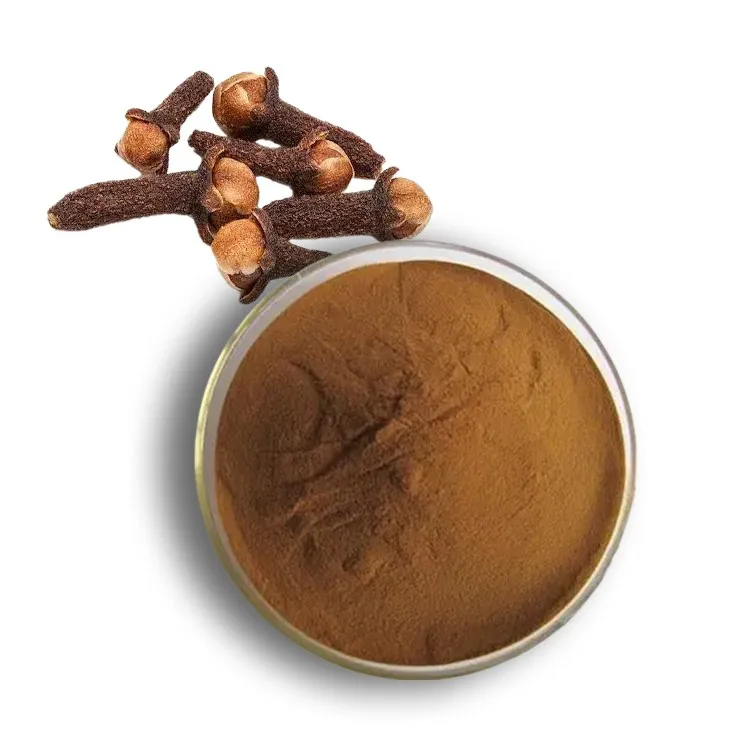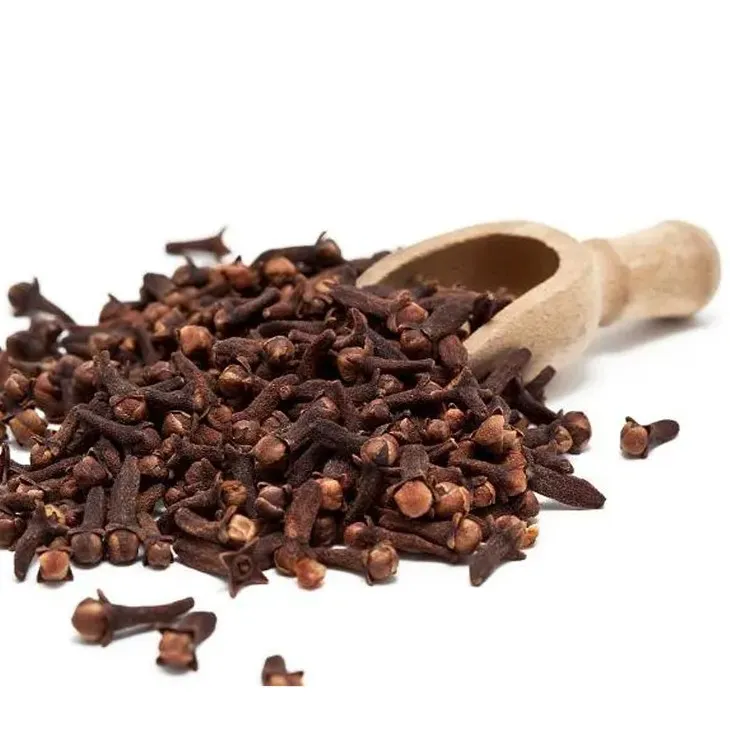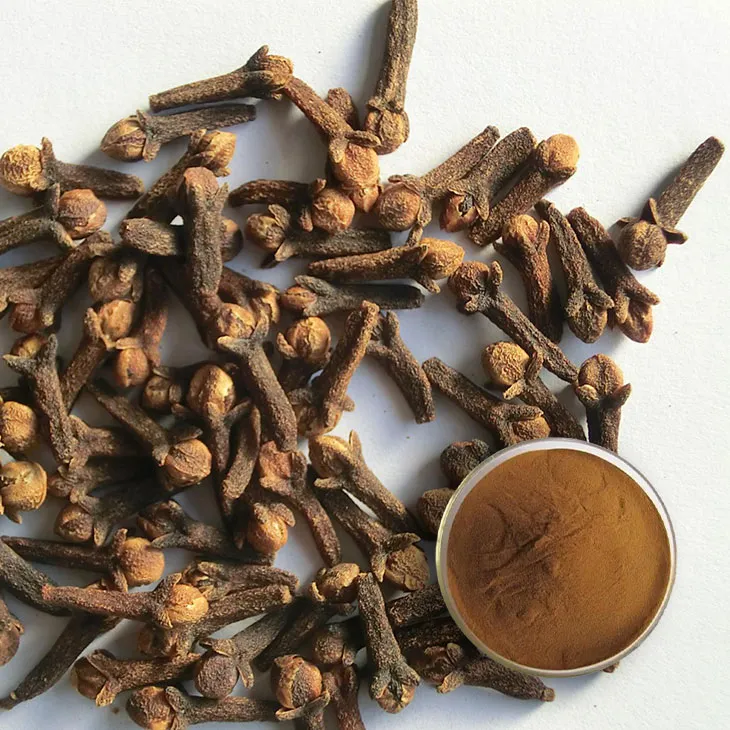- 0086-571-85302990
- sales@greenskybio.com
Is clove powder beneficial for diabetes? Are these all safe and applicable for diabetic patients?
2024-11-14

1. Introduction
Diabetes is a chronic metabolic disorder that affects millions of people worldwide. It is characterized by high blood sugar levels due to either the body's inability to produce enough insulin (Type 1 diabetes) or the cells' inefficiency in using insulin properly (Type 2 diabetes). Management of diabetes often involves lifestyle modifications, including diet control, regular exercise, and sometimes medication. In recent years, there has been an increasing interest in exploring the potential benefits of natural substances like Clove Powder in managing diabetes. Clove, a common spice in many cuisines, has a long history of traditional medicinal use. But the question remains: Is Clove Powder beneficial for diabetes? And are these all safe and applicable for diabetic patients? This article aims to explore these aspects in detail.

2. Clove Powder and Its Active Compounds
Clove powder is derived from the dried flower buds of the clove tree (Syzygium aromaticum). It contains a rich variety of bioactive compounds that may contribute to its potential effects on diabetes.
2.1 Eugenol
Eugenol is one of the major components in clove powder. It has been shown to possess antioxidant, anti - inflammatory, and antimicrobial properties. In the context of diabetes, eugenol may play a role in blood sugar regulation. Some studies suggest that it can influence the activity of certain enzymes involved in glucose metabolism. For example, it might affect the function of enzymes like alpha - glucosidase, which is responsible for breaking down complex carbohydrates into glucose. By inhibiting alpha - glucosidase, eugenol could potentially slow down the absorption of glucose from the digestive tract, thereby helping to prevent rapid spikes in blood sugar levels after a meal.
2.2 Flavonoids
Clove powder also contains flavonoids, which are well - known for their antioxidant properties. These flavonoids may help in reducing oxidative stress in the body. In diabetic patients, high blood sugar levels can lead to increased oxidative stress, which in turn can damage cells and tissues, especially those of the blood vessels and nerves. By reducing oxidative stress, the flavonoids in clove powder may contribute to the prevention of some of the long - term complications associated with diabetes, such as diabetic neuropathy and retinopathy.

3. Potential Effects on Blood Sugar Regulation
The possible impact of clove powder on blood sugar regulation is a key area of interest when considering its potential benefits for diabetic patients.
3.1 In - vitro and Animal Studies
Several in - vitro and animal studies have provided some evidence regarding the effect of clove powder or its active compounds on blood sugar levels. In laboratory experiments, extracts from clove have been shown to enhance insulin sensitivity in cell cultures. This means that cells become more responsive to insulin, which is crucial for the proper uptake and utilization of glucose. In animal models of diabetes, such as rats with chemically - induced diabetes, treatment with clove extracts has been associated with a reduction in fasting blood glucose levels. These findings suggest that there may be a biological basis for the potential use of clove powder in managing blood sugar levels in diabetic patients.
3.2 Human Studies
However, human studies on the effect of clove powder on diabetes are relatively limited. Some small - scale observational studies have reported that regular consumption of clove - containing foods or clove - based supplements may be associated with better glycemic control in some diabetic individuals. But these studies often lack the rigor of large - scale, randomized controlled trials. There is a need for more comprehensive human studies to confirm whether clove powder can truly have a significant and consistent effect on blood sugar regulation in diabetic patients.

4. Safety Aspects for Diabetic Patients
While the potential benefits of clove powder for diabetes are being explored, it is equally important to consider its safety aspects, especially in relation to the unique physiological conditions of diabetic patients.
4.1 Interaction with Medications
Many diabetic patients are on medications to control their blood sugar levels. There is a possibility of interactions between clove powder and these medications. For example, if a diabetic patient is taking hypoglycemic drugs, the concurrent use of clove powder may potentiate the effect of these drugs, leading to an increased risk of hypoglycemia (low blood sugar). This is because some of the active compounds in clove powder, like eugenol, may have additive or synergistic effects with the medications. Therefore, it is crucial for diabetic patients to consult their healthcare providers before starting to use clove powder or any clove - based supplements.
4.2 Impact on Overall Health
In addition to potential interactions with medications, the impact of clove powder on the overall health of diabetic patients needs to be considered. While clove powder is generally recognized as safe when used in moderation in cooking, excessive consumption may lead to adverse effects. Some people may experience allergic reactions to clove powder, which can range from mild skin rashes to more severe respiratory problems. Moreover, high doses of clove powder may cause digestive issues such as nausea, vomiting, and abdominal pain. Diabetic patients, who may already have compromised digestive systems due to diabetes - related complications, need to be especially cautious about these potential side effects.
5. Conclusion
In conclusion, clove powder contains active compounds such as eugenol and flavonoids that may have potential benefits for diabetes, particularly in terms of blood sugar regulation and reducing oxidative stress. However, the evidence from human studies is currently limited, and more research is needed to confirm its efficacy. Moreover, when it comes to the safety of clove powder for diabetic patients, there are concerns regarding potential interactions with medications and adverse effects on overall health. Diabetic patients should not self - medicate with clove powder or supplements without consulting their healthcare providers first. With further research, it may be possible to better understand the role of clove powder in diabetes management and develop appropriate guidelines for its safe and effective use.
FAQ:
1. What are the active compounds in clove powder that might affect diabetes?
Clove powder contains compounds such as eugenol. Eugenol has antioxidant and anti - inflammatory properties. Some research suggests that these properties may play a role in improving insulin sensitivity, which could potentially be beneficial for blood sugar regulation in diabetes. However, more in - depth studies are needed to fully understand how these compounds interact with the body's metabolic processes related to diabetes.
2. Can clove powder directly lower blood sugar levels in diabetics?
There is currently no conclusive evidence that clove powder can directly and significantly lower blood sugar levels in diabetic patients. While some of its components may have properties that could influence glucose metabolism in a positive way, it is not a substitute for standard diabetes medications. Diabetic patients should not rely solely on clove powder for blood sugar control but should follow their doctor's advice regarding diet, exercise, and medication.
3. Are there any potential side effects of using clove powder for diabetics?
Some diabetics may experience allergic reactions to clove powder. Also, excessive consumption of clove powder can cause gastrointestinal problems such as nausea, vomiting, and diarrhea. Since diabetic patients may already have some degree of gastrointestinal issues due to their condition or medications, these side effects could potentially exacerbate their overall health problems. Moreover, it could interact with other medications they are taking, although more research is needed to determine the exact nature of these interactions.
4. How should diabetic patients use clove powder if it has some potential benefits?
If diabetic patients want to try using clove powder considering its potential benefits, they should first consult their doctor. The doctor can assess their individual health situation, including other medications they are taking. If approved, it should be used in moderation. It could perhaps be added in small amounts to food as a flavoring agent rather than being consumed in large quantities directly. Regular monitoring of blood sugar levels and overall health is essential to ensure that there are no adverse effects.
5. Does the form of clove powder (e.g., fresh, dried) matter in relation to diabetes?
The form of clove powder may potentially matter. Dried clove powder is more commonly used and has a more concentrated form compared to fresh cloves. However, there is not much research specifically comparing the different forms in relation to diabetes. In general, the quality and purity of the clove powder, regardless of the form, should be ensured to avoid any potential contaminants that could be harmful to diabetic patients.
Related literature
- The Role of Spices in Diabetes Management"
- "Potential of Natural Compounds in Clove for Metabolic Disorders"
- "Interaction between Herbal Supplements and Diabetes Medications"
- ▶ Hesperidin
- ▶ citrus bioflavonoids
- ▶ plant extract
- ▶ lycopene
- ▶ Diosmin
- ▶ Grape seed extract
- ▶ Sea buckthorn Juice Powder
- ▶ Beetroot powder
- ▶ Hops Extract
- ▶ Artichoke Extract
- ▶ Reishi mushroom extract
- ▶ Astaxanthin
- ▶ Green Tea Extract
- ▶ Curcumin Extract
- ▶ Horse Chestnut Extract
- ▶ Other Problems
- ▶ Boswellia Serrata Extract
- ▶ Resveratrol Extract
- ▶ Marigold Extract
- ▶ Grape Leaf Extract
- ▶ blog3
-
Cranberry Plants and Skin - care Products.
2024-11-14
-
Genistein
2024-11-14
-
Ginseng Root Extract
2024-11-14
-
Carrageenan Extract Powder
2024-11-14
-
Cocoa Extract
2024-11-14
-
Rose Hip Extract
2024-11-14
-
Sophora Japonica Flower Extract
2024-11-14
-
Grape Leaf Extract
2024-11-14
-
White mustard seed extract
2024-11-14
-
Angelica sinensis extract
2024-11-14
-
Lotus leaf extract
2024-11-14





















